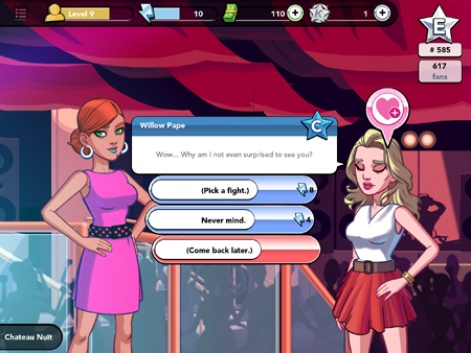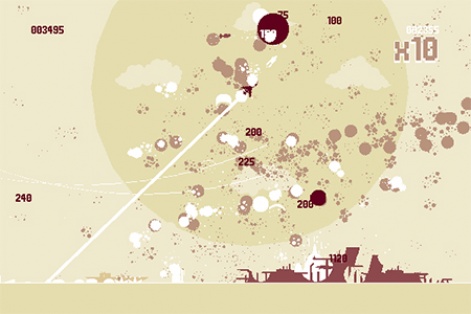Do you support women playing games? Then you need to support free-to-play because it's what is getting women into playing games.
It's time for socially-minded developers to start putting force to their beliefs and to participate in free-to-play gaming, particularly in mobile.
See, I get the sense that there's a bit of hypocrisy amongst game developers. I understand that free-to-play is hard to pull off from a financial standpoint for smaller developers, that it often requires marketing money and other techniques to draw in enough of an audience to get them to pay.
However, there's also an ideological opposition to free-to-play, that it breaks game design rules, that it encourage pay-to-win. Charles Randall breaks down some of the flaws with the free-to-play design from his perspective here.
These opinions on what is appropriate game design are all informed from a traditional gaming perspective. Plus, they definitely don't correlate with the perspective of a free-to-play player.
Different by design
Smartphones are encouraging people who never really played games before to play games, and these people don't have the sort of cultural expectation that people versed in gaming mores and traditions have.
They don't want games that fall into those traditions – they want games they can play for free, that fit into how they use their phones and tablets, and it's clear that they are willing to pay. They just want to know what they're getting up front first.
Maybe it's just indoctrination, given the talk of psychological tactics to get people to p(l)ay more, but there is definite evidence saying that more women are playing games – and they're doing so in ways that are different.

Flurry's data on the genres dominated by men and women show that women prefer games termed 'casual' – management, casino, puzzle, 'social' games, etc. That's set against men typically liking card games, tower defense, shooters, action-RPGs.
What's more, there's an interesting bit of systematic hypocrisy going on here. Many of the developers who harp the loudest about getting women into gaming are making games that men prefer. Vlambeer's Rami Ismail is an outspoken social justice advocate (and free-to-play opponent), but games like Nuclear Throne, Luftrausers, even Ridiculous Fishing, are games for 'gamers'.
Indeed, a lot of indies make games with similar themes, that are aggressive, reflex-based, and competition-focused. I get the sense that the ones who try to pay the bills by making 'casual' projects – and the ones studies suggest many women will like – aren't as respected as the ones who make games for gamers.

Yet, these 'on trend' indies will still go on about how they want women to feel welcome in gaming, all while making the kinds of games that a large portion of women don't take to.
It's something of a complex series of contradictions that many of the anti-F2P indies threw their weight behind the 'gamers are dead' articles during the rise of GamerGate, yet explicitly target the very audience they claim is on the way out.
New audiences
Undoubtedly one of the main reasons behind all of this is the fact that game development is still a very male dominated field, but as I said a couple of weeks ago, the people who harp the loudest about changing game culture are doing a terrible job at actually getting anything done about it. It's a suggestion that ruffled a lot of feathers.
Developers need to set aside their traditional game design principles and start to make games that take advantage of F2P.
What's silly is that many developers are doubling down on PC and consoles when mobile is a growing audience and has the people that they want to play games – eager gamers, looking to play and looking to spend.
Eager gamers they could be making games for.
I think that game developers, particularly socially-conscious ones, need to set aside their traditional game design principles and start to make games that take advantage of free-to-play, or at least to respect those who are making games that are 'casual'.
This isn't just because I find the hypocrisy troubling – I think it's an issue I suffer from too based on my tastes and the games that I have historically enjoyed. A part of the problem, of course, is that free-to-play right now feels too corporate and safe. It needs a dose of creativity that many of the talented developers could provide.
There are too many Clash of Clans clones and Candy Crush-likes and silly casino games.
I want to hear of industry veterans making free-to-play games and not despair at the game eventually ending up not that different from others. I also don't want to stifle the idea that free-to-play should be criticised.

Now, I think that this free-to-play and casual game push could happen in ways beyond developers just trying to make the next Candy Crush or Clash of Clans. I championed smaller games well before Flappy Bird was on the tip of anyone's tongue, and then that game showed how developers don't even need to use consumable in-app purchases to make money – and mitigating risk by doing multiple, smaller projects.
There's still this attitude of the one big holy grail project for developers, and maybe teams are going too small, too independent to do this sort of thing successfully when there could be greater strength in numbers.
Risk and reward
As well, I'd like to see publishers perhaps take an interest in funding independent free-to-play projects with the idea of disruption, that someone could make the next billion dollar game, or even just make the next Temple Run or Tiny Tower, once the risk of making free-to-play is mitigated for independent developers flying by the seat of their pants.
This is all because, ultimately, the reason why more developers aren't making more free-to-play and casual projects – games that could advance the medium, attract these new audiences that include the women that they want to bring into the fold - is because it's too risky to do so.
Whatever happens, something needs to change, not just to justify the ideologies being espoused, but because I think it could make for better free-to-play games.
The new audiences being drawn towards gaming – including women - deserve to play awesome new games from the breadth of creators out there, not just corporate-made games tuned to make money.





















